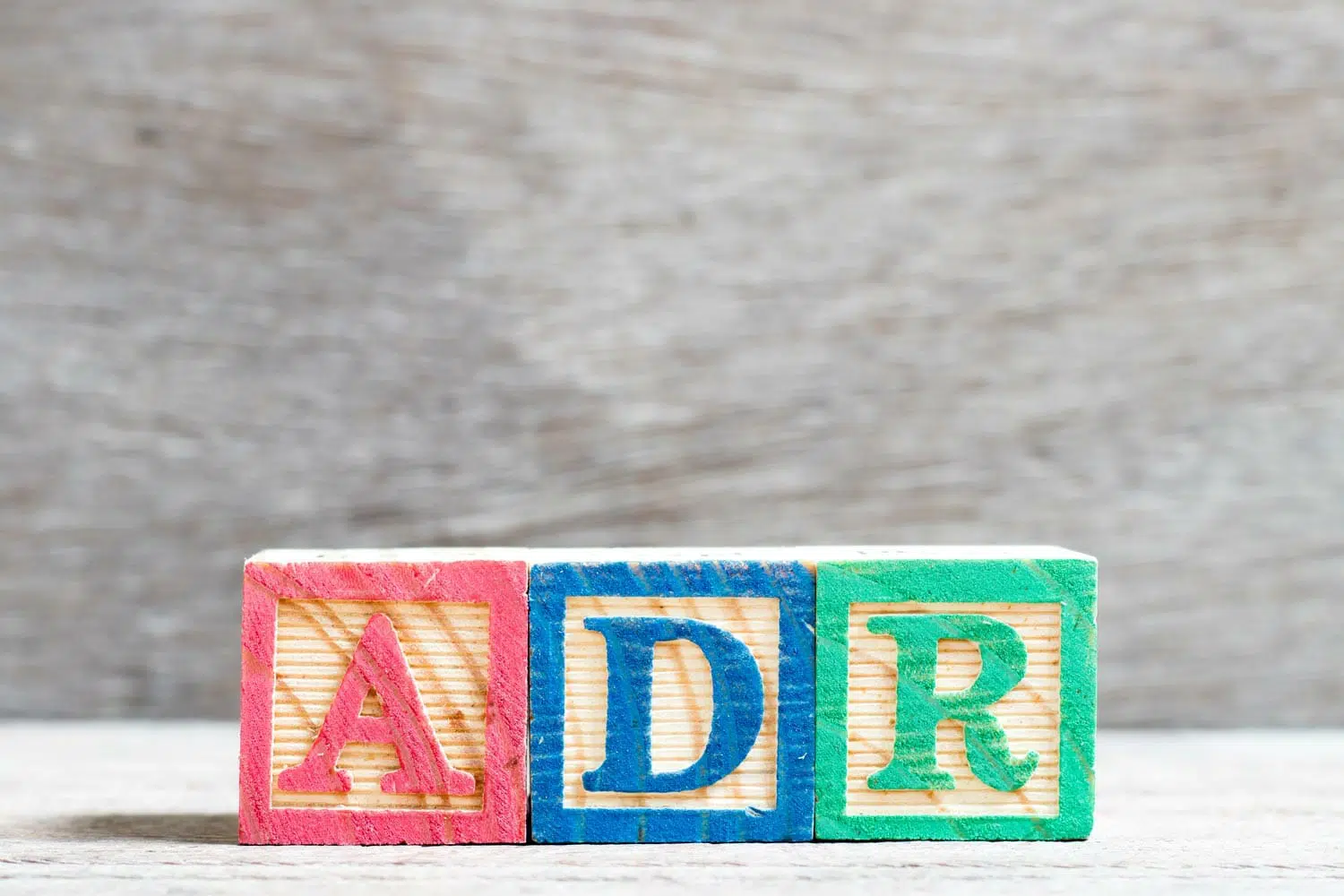Let’s play a game. Over here, we have an expensive and drawn out process that will disrupt your life and your finances. But, behind that curtain, we have something that will cost significantly less, be much less stressful, and likely be over and done much more quickly. Which do you choose? If you went for what’s behind the curtain, you chose an alternative dispute resolution (ADR) process.
ADR in Virginia
In Virginia, the Virginia Court System encourages disputants to try the ADR process as a way to expedite cases and clear court calendars. No single ADR exists; the court system accepts (as the court’s own website says) “any structured process in which a neutral, impartial person assists parties in a dispute in reaching a voluntary settlement by means of mediation, conciliation, facilitation, use of ombudsperson, or any other proceeding leading to a voluntary settlement.”
This means you could turn to these mediators:
- Department of Professional and Occupational Regulation (DPOR)
- Your own attorney and her attorney
- Department of Dispute Resolution Services
- Circuit Court Mediation Program
Neutral Arbiters
All mediators are trained to be neutral arbiters, so that neither side feels unfairly targeted or favored. The process is not adversarial, which differentiates it from a court hearing. The disputing parties meet, present their issues before a neutral, impartial mediator, and discuss solutions between them. Unlike a court trial, trial with a jury, or hearing, flexible answers to troubling challenges are acceptable:
- Letters of apology
- Voluntary written agreements
- Acknowledgement of fault
- Vows to salvage a relationship
In fact, just about anything that the two parties agree to can be codified into a document acceptable by the court as a result of the ADR process. Unlike a court hearing, the ADR need not bear entirely on law. It is an alternative to the courtroom, and emotional baggage is often part of the process.
Who Decides What the Settlement Is?
Unlike an arbitrator, a mediator does not impose a finding or decision on the disputing couple. The couple comes to an agreement that, through the services of the mediator, is fair and reasonable. In other words, one party does not have the ability to browbeat the other party into taking responsibility or admitting fault. But, as DPOR states, “The mediator has no authority to make a decision or impose a settlement upon the parties.”
Advantages of ADR
A clear advantage to the ADR process is that it is generally far less expensive than the adversarial trial system. You should still have an attorney, but the preparation time and time spent before the mediator may turn out to be far less than the time needed for a courtroom contest.
Another advantage is that both sides compromise. ADR is not intended to be a blood sport, with winner-take-all prospects. It is an open platform for negotiation and conciliation. In fact, a well-known, local law firm offers this concise definition:
ADR is a method of resolving legal disputes without going to trial, which typically includes neutral evaluation, negotiation, arbitration, mediation, and conciliation.
How Alternative Dispute Resolution is Done
If you are initiating the dispute with your partner or wife, you can ask your attorney to request an ADR rather than a hearing. If your wife initiates a legal action against you, you can respond to her notice by requesting an ADR (again, through your attorney to ensure it is done correctly).
Because it is outside the gavel-banging proceedings of a Circuit Court, the ADR process is faster, less formal, and far more private than a public hearing. You and your spouse or partner can determine your own measure of success, without resorting to the Code of Virginia, case law, or other formal state and federal laws. This does not mean you agree to do something illegal (the mediator is trained in the law and will prevent that), but it does mean you can resolve conflicts in creative ways outside the bounds of Virginia’s laws.
Wounded feelings? You may want a letter of apology and an outline of a path forward, including a signed commitment by your wife or partner to change her behavior.
Hurt pride? You may just want your spouse to admit she erred, was unfaithful, squandered money, or did something that tilted the balance between you two. It can serve as a reminder in the future, or, if necessary, be the first plank in a platform leading to divorce.
What are the Downsides to Alternative Dispute Resolution?
One disadvantage of the ADR process is that discovery, a vital step in a legal clash in court, is not performed. You cannot compel your spouse or partner to present papers and records you do not have, but which could bolster your case.
You and your spouse or partner may not reach a resolution with the mediator. You may emerge more divided than before. No ADR process guarantees an outcome.
A third issue is that ADR resolutions are final; the original dispute cannot be litigated if one party changes her or his mind later. You can, of course, go on to file for divorce and enter other contentious issues as grounds for that legal action.
ADR is Not A Game
Though ADR is faster, less expensive, and often easier than a full-blown trial or hearing, it is hardly a game. You have to commit to the process, work with your attorney, and be realistic about the outcome. You also are expected to conduct the mediation sessions seriously, with a sense that you are bargaining in good faith. If the mediator feels you are not serious, that you are deliberately attempting to draw out a conflict, the mediator can end the ADR process and recommend legal proceedings.
When you call The Firm For Men at 757-383-9184, or when you contact our offices online, you can discuss many options with your men’s family law attorney. We are a modern, open-minded law firm intent on rigorously defending Virginia men’s rights.

